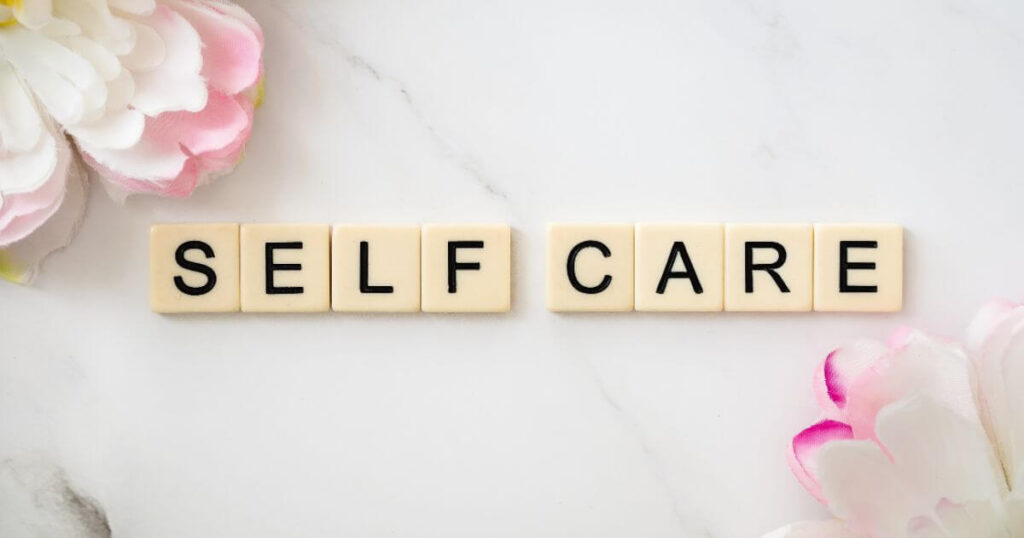
If you’re looking to enhance your overall health and well-being, you’ve come to the right place. In this article, we’ll explore a variety of simple yet effective strategies that can help you take charge of your health and make positive changes. From incorporating regular exercise into your routine to adopting a balanced and nutritious diet, there are numerous steps you can take to improve your physical and mental well-being. So, let’s dive right in and discover how you can start prioritizing your health today!
#1 – Optimize Physical Health and Physiological Well-Being
Exercise regularly
Regular exercise is essential for maintaining good physical health. It helps to improve cardiovascular health, increase muscle strength, and enhance flexibility. Engaging in moderate-intensity aerobic activities such as walking, swimming, or cycling for at least 150 minutes per week is recommended. Additionally, incorporating strength training exercises at least twice a week helps build and maintain muscle mass. Remember, finding an activity you enjoy will make it easier to stick to a regular exercise routine.
Eat a balanced diet
Eating a balanced diet is crucial for your overall health. Be sure to include a variety of fruits, vegetables, whole grains, lean proteins, and healthy fats in your meals. These provide essential nutrients, vitamins, and minerals that support your body’s functioning. It’s also important to control portion sizes to avoid overeating. Remember, moderation is key when it comes to indulging in treats or high-calorie foods.
Get enough sleep
Adequate sleep is vital for your physical health. It allows your body to rest, repair, and recharge. Establishing a regular sleep schedule by going to bed and waking up at the same time each day can improve the quality of your sleep. Creating a calming sleep environment, free from distractions like electronics and excessive noise, can also aid in falling asleep faster and staying asleep throughout the night.
Drink plenty of water
Staying hydrated is essential for maintaining good physical health. Water plays a crucial role in various bodily functions, including digestion, circulation, and temperature regulation. Aim to drink at least 8 glasses of water per day. If you engage in intense physical activity or live in a hot climate, you may need to drink even more to replace lost fluids.
Avoid smoking and excessive alcohol consumption
Smoking and excessive alcohol consumption have detrimental effects on your physical health. Smoking increases the risk of various diseases, including lung cancer, heart disease, and stroke. Additionally, it can cause respiratory issues and damage your skin. Meanwhile, excessive alcohol consumption can lead to liver damage, addiction, and increased risk of accidents and injuries. Quitting smoking and moderating alcohol consumption are important steps towards improving your overall physical well-being.
#2 – Enhance Mental Health and Cognitive Resilience
Practice stress management techniques
Managing stress is crucial for maintaining good mental health. Incorporating stress management techniques into your daily routine can help you cope with life’s challenges more effectively. Deep breathing exercises, mindfulness, and meditation are effective ways to reduce stress. Additionally, engaging in activities you enjoy, such as spending time in nature or practicing a hobby, can also help alleviate stress.
Engage in regular relaxation activities
Relaxation activities can significantly impact your mental health. Whether it’s reading a book, taking a bath, or listening to calming music, finding time for relaxation allows your mind to unwind and recharge. Engaging in activities that promote relaxation can reduce anxiety, improve mood, and enhance overall well-being.
Seek professional help when needed
If you’re struggling with your mental health, don’t hesitate to seek professional help. Mental health professionals, such as therapists or counselors, can provide valuable guidance and support. They can help you navigate through difficult emotions, develop coping strategies, and work towards improving your mental well-being.
Engage in hobbies and activities that you enjoy
Participating in activities that bring you joy is essential for your mental health. Whether it’s painting, playing a musical instrument, or gardening, engaging in hobbies allows you to express yourself and find fulfillment. Make time for activities that you genuinely enjoy to boost your mood and enhance your overall mental well-being.
Stay socially connected
Maintaining social connections is crucial for your mental health. Engaging in meaningful relationships and regularly connecting with friends and family can provide a support system during challenging times. Making an effort to meet new people, join clubs or organizations, and participate in community events can also help create a sense of belonging and improve your mental well-being.
#3 – Foster Emotional Health and Equilibrium
Express your emotions
Expressing your emotions is essential for your emotional health. Bottling up emotions can lead to increased stress and negatively impact your mental well-being. Find healthy ways to express your emotions, such as talking to a trusted friend or family member, writing in a journal, or seeking therapy. Remember, it’s okay to feel and express a wide range of emotions.
Practice self-care
Practicing self-care is crucial for maintaining good emotional health. Prioritizing activities that promote self-care, such as taking a bubble bath, going for a walk, or pampering yourself, is important for nurturing your emotional well-being. Remember, taking care of yourself is not selfish; it is necessary for overall health and happiness.
Build and maintain healthy relationships
Healthy relationships contribute to your emotional well-being. Surrounding yourself with supportive and positive individuals can enhance your overall happiness and provide a sense of belonging. Communicate openly, listen actively, and invest time and effort in building and maintaining healthy relationships.
Engage in activities that bring you joy
Doing activities that bring you joy is essential for your emotional health. Whether it’s dancing, cooking, or playing a sport, engaging in activities you love can increase positive emotions and reduce stress. Make time for activities that make you happy and use them as a way to relax and recharge emotionally.
Develop healthy coping mechanisms
Developing healthy coping mechanisms is crucial for managing difficult emotions and situations. Instead of turning to unhealthy coping mechanisms like substance abuse or emotional eating, find healthier alternatives. This could include deep breathing exercises, journaling, practicing mindfulness, or seeking support from a therapist or support group.
#4 – Improve Nutrition & Cultivate a Regimen of Nutrient-Rich Intake
Consume a variety of fruits and vegetables
Including a wide variety of fruits and vegetables in your diet is essential for good nutrition. These nutrient-dense foods are packed with vitamins, minerals, and antioxidants that support your overall health. Aim to have different colors of fruits and vegetables on your plate, as the various colors indicate different nutrients.
Limit processed and sugary foods
Processed and sugary foods should be limited in your diet. These foods are often high in unhealthy fats, added sugars, and artificial additives, which can contribute to weight gain, diabetes, and other health problems. Opt for whole foods instead, as they provide a more significant nutritional value.
Choose whole grains and lean proteins
Including whole grains and lean proteins in your diet is important for sustained energy and overall health. Whole grains, such as brown rice, quinoa, and whole wheat bread, are rich in fiber and essential nutrients. Lean proteins, such as chicken, fish, tofu, and beans, provide necessary amino acids and are lower in unhealthy fats compared to fatty meats.
Control portion sizes
Controlling portion sizes is crucial for maintaining a healthy weight and preventing overeating. Use smaller plates and bowls, practice mindful eating by paying attention to your hunger and fullness cues, and avoid eating in front of screens or when distracted. Listen to your body and stop eating when you feel satiated.
Stay hydrated
Staying hydrated is essential for overall health. Water helps transport nutrients, regulate body temperature, and remove waste products. Aim to drink at least 8 glasses of water per day, and increase your intake if you are physically active or in hot weather. Additionally, include hydrating foods like fruits and vegetables in your diet.

#5 – For Physical Activity Curate Diverse & Enjoyable Exercise Regime
Regular aerobic exercise
Regular aerobic exercise is essential for maintaining good physical health. Activities like brisk walking, jogging, swimming, or cycling increase your heart rate, improve cardiovascular health, and help manage weight. Aim for at least 150 minutes of moderate-intensity aerobic exercise or 75 minutes of vigorous-intensity exercise each week.
Strength training
Incorporating strength training exercises into your routine helps build and maintain muscle strength. It also improves bone density, posture, and overall functional fitness. Include exercises that target major muscle groups, such as push-ups, squats, and lunges, at least twice a week.
Flexibility exercises
Flexibility exercises help improve joint mobility, prevent injuries, and enhance overall physical performance. Engage in activities like yoga or stretching to maintain or improve flexibility. Remember to warm up before stretching and avoid overstretching to prevent muscle strains.
Incorporate physical activity into daily routine
Finding ways to incorporate physical activity into your daily routine can help you achieve the recommended amount of exercise. Take the stairs instead of the elevator, walk or bike instead of driving short distances, or stand up and stretch during long periods of sitting. Every little bit of physical activity counts towards improving your overall health.
Try different forms of exercise
Variety is the key to staying motivated and engaged in regular physical activity. Try different forms of exercise, such as dancing, martial arts, or playing a team sport, to keep your workouts enjoyable and exciting. Experimenting with new activities can also challenge your body and help prevent workout plateaus.
#6 – Prioritize and Implement Restorative Sleep Practices
Establish a regular sleep schedule
Establishing a regular sleep schedule is important for getting enough quality sleep. Try to go to bed and wake up at the same time each day, even on weekends. This helps regulate your body’s internal clock and improves the overall quality of your sleep.
Create a calming sleep environment
Creating a calming sleep environment can improve the quality of your sleep. Make sure your bedroom is cool, dark, and quiet. Use curtains or blinds to block out light, use earplugs or a white noise machine to mask disturbing sounds, and invest in a comfortable mattress and pillows.
Avoid caffeine and electronics before bed
Avoiding caffeine and electronics before bed can help improve your sleep quality. Caffeine is a stimulant that can interfere with falling asleep, so avoid consuming caffeinated beverages or foods several hours before bedtime. Electronic devices emit blue light, which can suppress the production of melatonin, a hormone that regulates sleep. Limit your use of electronic devices, especially in the hour before bed.
Practice relaxation techniques before sleep
Practicing relaxation techniques before sleep can help prepare your body and mind for restful sleep. Engage in activities such as gentle stretching, reading a book, taking a warm bath, or practicing deep breathing exercises to promote relaxation. Developing a pre-sleep routine can signal to your body that it’s time to unwind and prepare for sleep.
Avoid napping during the day
Avoiding napping during the day can help improve nighttime sleep quality. If you do need to nap, limit it to a short duration (20-30 minutes) and avoid napping too close to your bedtime. Napping for too long or too late in the day can disrupt your sleep-wake cycle and make it harder to fall asleep at night.

#7 – Implement Strategic Stress Management
Identify stress triggers
Identifying your stress triggers is an important step in managing stress. Recognize situations, people, or events that contribute to your stress levels. Once you are aware of your stressors, you can develop effective strategies to cope with them.
Practice deep breathing exercises
Deep breathing exercises are a simple yet effective way to reduce stress. Taking slow, deep breaths and focusing on your breath can activate the body’s relaxation response. By practicing deep breathing, you can calm your mind and body, reduce anxiety, and improve overall well-being.
Engage in relaxation techniques

Engaging in relaxation techniques can help reduce stress levels. Activities such as yoga, meditation, progressive muscle relaxation, or listening to calming music can promote a sense of peace and relaxation. Find the relaxation techniques that work best for you and incorporate them into your daily routine.
Prioritize and delegate tasks
Feeling overwhelmed by a long to-do list can contribute to stress. Prioritize your tasks and focus on completing the most important ones first. Learn to delegate tasks to others when possible, to lighten your load and reduce stress levels. Remember, it’s okay to ask for help when needed.
Maintain a positive mindset
Maintaining a positive mindset can help you better cope with stress. Try to reframe negative thoughts into positive ones and practice gratitude. Surround yourself with positive influences, engage in activities that bring you joy, and remind yourself of your strengths and accomplishments.
#8 – Embark on a Holistic Self-Care and Nurturing Journey
Take time for yourself
Taking time for yourself is crucial for your overall well-being. Carve out regular moments in your schedule to do things that make you happy and relaxed. Whether it’s reading a book, taking a bubble bath, or going for a walk in nature, prioritize self-care activities that recharge and rejuvenate you.
Engage in activities you enjoy
Engaging in activities you enjoy is an essential part of self-care. Do things that bring you joy, whether it’s painting, playing a musical instrument, or playing a sport. Finding activities that truly make you happy helps improve your mood, reduce stress, and enhance your overall well-being.
Practice mindfulness and meditation
Practicing mindfulness and meditation can help reduce stress and promote a sense of inner calm. Take a few minutes each day to focus on the present moment, allowing thoughts and worries to pass without judgment. Meditation can help you develop a greater sense of self-awareness and improve your overall mental well-being.
Set boundaries and say no when necessary
Setting boundaries and saying no when necessary is an important aspect of self-care. Learn to prioritize your needs and avoid overextending yourself. Recognize that it’s okay to decline certain commitments or responsibilities if they cause excess stress or prevent you from taking care of yourself.
Prioritize self-care activities
Make self-care activities a priority in your life. Schedule them into your daily or weekly routine and treat them as important appointments that cannot be waived. Prioritizing self-care helps ensure that you have time and energy to take care of your physical, mental, and emotional well-being.

#9 – Cultivate Meaningful and Diverse Social Connections & Bonds
Spend time with loved ones
Spending quality time with loved ones is important for your social well-being. Make an effort to connect with family and friends regularly. Plan activities together, engage in meaningful conversations, and create lasting memories. Strong social connections provide a support system and contribute to your overall happiness and well-being.
Join clubs or organizations
Joining clubs or organizations can expand your social circle and provide opportunities for new friendships. Consider joining a book club, sports team, or volunteer group that aligns with your interests. Engaging in activities with like-minded individuals can foster a sense of belonging and enhance your social connections.
Volunteer in the community
Volunteering in the community not only benefits others but also helps you develop meaningful connections and a sense of purpose. Consider contributing your time and skills to charitable organizations or local community initiatives. Volunteering allows you to make a positive impact in the lives of others while fostering social connections.
Maintain regular communication
Regular communication is essential for maintaining strong social connections. Make an effort to stay in touch with family and friends through phone calls, video chats, or face-to-face meetings. Actively listen and show genuine interest in their lives. The more you invest in maintaining communication, the stronger your social connections will be.
Seek support when needed
Seeking support from others is a crucial aspect of social connections. Don’t hesitate to reach out to friends, family, or support groups when facing challenges or going through tough times. Sharing your thoughts and emotions with others can provide comfort, encouragement, and valuable advice.
#10 – Pursue Proactive Preventive Health Care
Schedule regular check-ups
Scheduling regular check-ups with your healthcare provider is an essential part of preventive health care. Regular check-ups allow your doctor to monitor your overall health, detect potential issues early, and provide necessary interventions or screenings. Don’t wait until you’re experiencing symptoms to visit your healthcare provider; prioritize preventive care.
Stay up to date on vaccinations
Keeping up with vaccinations is important for protecting yourself and others from preventable diseases. Follow the vaccination recommendations provided by your healthcare provider and ensure you receive necessary booster shots. Vaccines are a crucial part of preventive health care and can prevent the spread of harmful diseases.
Practice safe sex
Practicing safe sex is vital for preventing sexually transmitted infections (STIs) and unintended pregnancies. Use contraceptives, such as condoms or hormonal birth control, to reduce the risk of STIs and unwanted pregnancies. Regularly getting tested for STIs is also important, especially if you have multiple sexual partners.
Screen for diseases and conditions
Screening for diseases and conditions is an important aspect of preventive health care. Follow the recommended guidelines for screenings such as mammograms, colonoscopies, pap smears, and blood tests. Early detection can significantly increase the chances of successful treatment and improve health outcomes.
Take prescribed medications as directed
If you have been prescribed medications for a specific condition or health issue, it is important to take them as directed by your healthcare provider. Following the prescribed medication regimen is crucial for managing chronic conditions, preventing complications, and improving overall health.

By implementing these recommendations into your daily life, you can improve your overall health and well-being. Remember to be consistent and patient with yourself as you work towards incorporating these healthy habits into your routine. Your commitment to your physical, mental, emotional, and social health will yield long-term benefits and enhance your overall quality of life.
Hey guys, I’m sorry if I seem to ramble on a bit but I get so carried away when I start to pontificate… (ahem).
But seriously now, I would really appreciate it if you would comment on this post about improving our overall health and let me know what you think. Connect with me, Leave a comment and lets grow this blog together.
To SUCCESS, Yours and mine,
Wayne.
P.S If you asked me to recommend one piece of information that could help you to get started and become a success this is it. Relevant detailed instructions and guidance all the way from acquiring your domain, building up your site and creating lists, identifying and creating and marketing offers to relevant traffic. All you need is right here.
